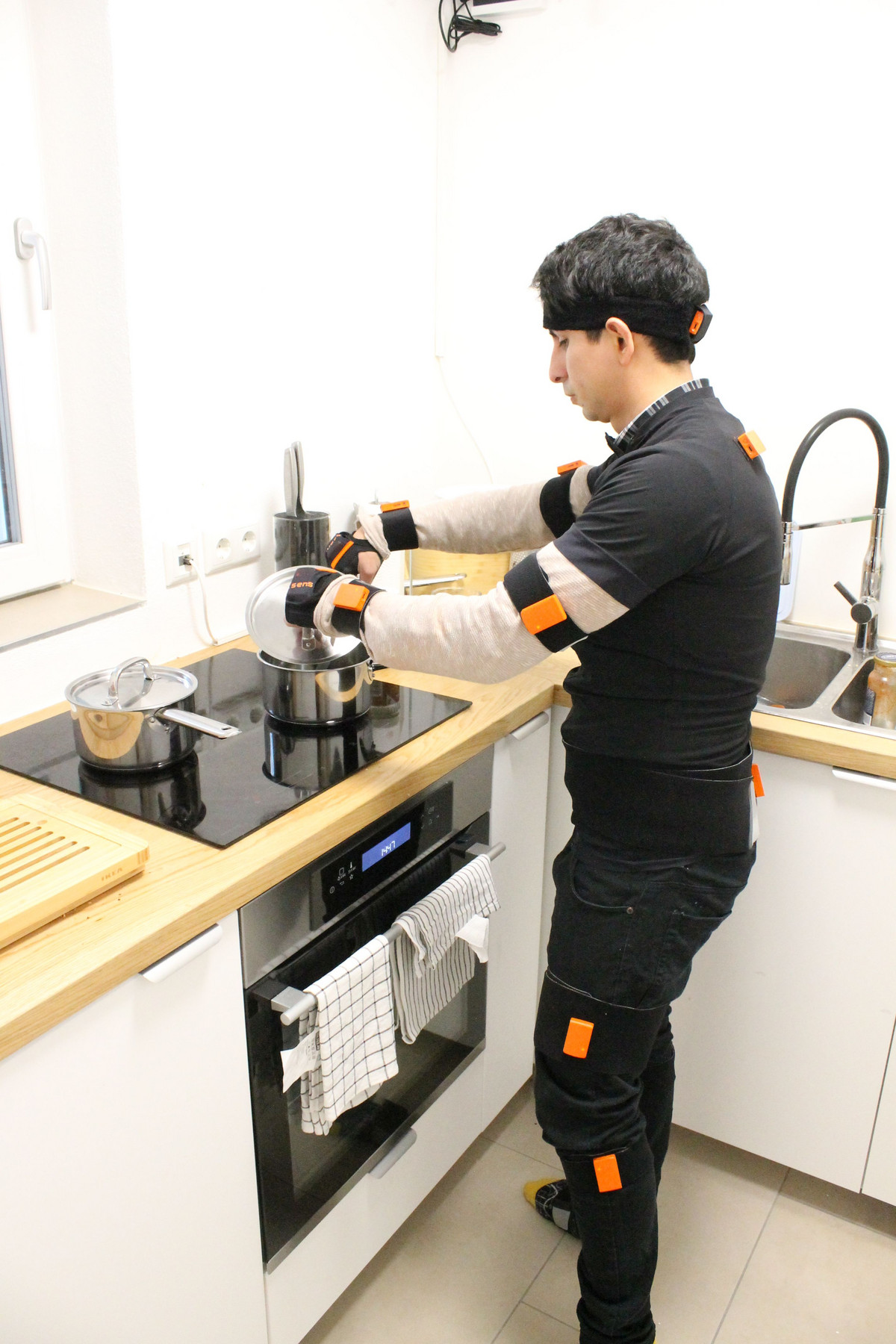University of Bayreuth opens Kulmbach Live-in Lab for holistic research on digital health
The possibilities for researching human behaviour with the help of artificial intelligence are being taken to the next level in Kulmbach: The Live-in Lab there is Europe's leading laboratory for digital, AI-supported research into human behaviour in everyday life. It has now been opened.
"We know so much about human genetics, but so little about our environment and our behaviour in it. It is therefore particularly important to measure this with the help of artificial intelligence. The findings make an important contribution to holistic research into human health," says Prof Dr Aldo Faisal, Professor of Digital Health with a focus on data science in the life sciences at the University of Bayreuth, explaining the idea behind the Live-in Lab.
A unique research environment has been created in two flats in Kulmbach that makes it possible to study everyday human activities such as cooking, eating, learning, cleaning and interacting with other people and to analyse this with the help of artificial intelligence. The innovative approach uses realsense cameras and intelligent body sensors to collect movement data and recognise movement patterns. The collection of data in Kulmbach is not limited to a specific action, as in previous research, but captures the entire spectrum of human behaviour in a completely natural and non-invasive way.
The Living Lab's technological equipment includes depth cameras, realsense cameras, radar sensors, wearable sensors on the body, eye-tracking glasses, chemical and air sensors and continuous EMG & EEG measurements. These technologies are used to collect behavioural and health-related data, for example to identify the subject's intentions and then support them digitally, but also to understand how small changes in everyday life can lead to improvements in health. Long-term recordings will make it possible to make certain medical prognoses and improve the prevention and rehabilitation of illnesses. Insights into the integration of human behaviour and artificial intelligence for the healthcare sector can also be expected, as well as findings for intelligent assistance and home technologies that can be objectively tested and optimised here.
Prof. Dr. Aldo Faisal ist Forschungsleiter des in London und Bayreuth arbeitenden Brain and Behaviour Lab, das an der Schnittstelle von maschinellem Lernen, Neurowissenschaften und Biomedizintechnik arbeitet. Er ist Inhaber des Lehrstuhls für Digital Health & Data Science in den Lebenswissenschaften an der Fakultät für Lebenswissenschaften: Lebensmittel, Ernährung und Gesundheit der Universität Bayreuth in Kulmbach. Zudem hat er eine Professur für KI und Neurowissenschaften am Imperial College London inne und ist Direktor des Behaviour Analytics Lab am Data Science Institute in London.

© Uni Bayreuth/AMM | In the Live-in Lab, people are observed by sensors and cameras over several hours or days so that conclusions can be drawn about their behaviour. Doctoral student Renato Mio Zoldivar is cooking here. His collected data can be displayed and processed on laptops.

© Uni Bayreuth/AMM

© Uni Bayreuth/AMM



